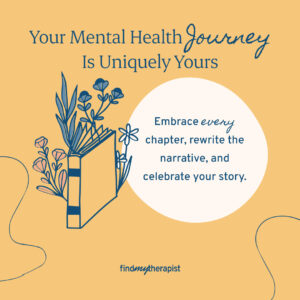3 Components of Mental Health

Mental health is a fundamental part of our overall well-being. It impacts how we think, feel, and behave every day. Understanding the components of mental health can help us better care for our emotional, cognitive, and behavioral needs — and recognize when we or someone we care about may need support. But what is mental health, exactly?
In this blog, we’ll explore the key aspects of mental health, focusing on three primary components of mental well-being: cognitive health, emotional health, and behavioral health.
What is mental health?
Before exploring the individual components, it’s essential to grasp the broader mental health definition. We can think of mental health as the ability to adapt in challenging situations by effectively managing our thoughts and emotions in order to continue pursuing our goals and behaving in line with our values. Mental health is not something you have, it’s something you practice.
The parts of mental health are interconnected, and a disturbance in one area can impact the others. Recognizing and nurturing each component is vital for overall mental wellness. Mental health can be broken down into three major components: cognitive health, emotional health, and behavioral health. Each of these components of mental health interact and influence each other. They are all imperative to overall well-being and health.
The 3 components of mental health
1. Cognitive health
Cognitive health pertains to our mental processes — how we perceive, think, learn, and remember. It’s a crucial component of mental health that enables us to process information, solve problems, and make decisions. Our thoughts are constantly running in the background like a radio. For example, a recent study discovered we have over 6,000 thoughts on average per day. These thoughts are often so automatic that we don’t stop to recognize them for what they are, just thoughts, prone to error and bias, and not at all a reflection of objective truth.
Characteristics of cognitive health
Cognitive health refers to your ability to:
- Concentrate and stay focused
- Make thoughtful decisions
- Learn and retain information
- Process emotions and experiences logically
- Solve problems and plan ahead
Ways to improve cognitive health
- Challenge your brain: Keep your mind sharp with puzzles, reading, journaling, or learning something new. Mental stimulation is fuel for long-term cognitive resilience.
- Practice mindfulness: Mindfulness meditation trains your attention, helping you stay present and aware of your thoughts without judgment. This promotes clearer thinking and self-regulation.
- Limit cognitive overload: Too much multitasking or constant information input can lead to burnout. Take breaks, focus on one thing at a time, and give your brain space to rest.
- Seek therapy to reframe thoughts: Therapy can help you identify thought distortions and develop healthier coping strategies. This not only boosts cognitive health — it supports emotional and behavioral wellness, too.
Poor cognitive health can contribute to symptoms of anxiety, depression, and other mental health conditions. Recognizing a thought for what it is — just a thought — is an important first step in improving your cognitive health.
2. Emotional health
Emotional health involves our ability to understand, express, and manage our emotions. It’s a vital component of emotional well-being that influences our self-esteem, relationships, and resilience. It’s one of the most visible components of mental health, and it plays a crucial role in how we connect with ourselves and others.
Our emotions help motivate us to take action in line with our goals and values. They motivate us to seek out meaningful experiences, avoid danger and embarrassment, and much more. They can be a helpful source of information. But just like our thoughts, they can be biased and misleading. We might sense danger when we’re actually safe and vice versa.
Characteristics of emotional health
Emotional health refers to your ability to:
- Recognize and name a wide range of emotions
- Express emotions appropriately and constructively
- Regulate emotional reactions in difficult situations
- Empathize with others
- Build and maintain emotionally healthy relationships
Emotional health is not about being happy all the time but about being able to navigate the full range of emotions and respond appropriately. When we give our emotions more credit than they’re worth, we run the risk of getting caught in the riptide. On the other hand, if we habitually block our emotions, we effectively retreat from life itself. As a result, poor emotional health can lead to mood disorders, depression, anxiety, and strained relationships.
Ways to improve emotional health
- Label or name your emotions: Start by noticing how you feel — without judgment. Use specific words: instead of “bad,” try “disappointed,” “overwhelmed,” or “nervous.” Naming your emotions helps you manage them.
- Practice healthy emotional expression: Let yourself feel what you feel — and find safe, constructive outlets to express those emotions, whether through talking, writing, art, or movement.
- Build your support system: Talking to a trusted friend or therapist can provide perspective and emotional validation, which helps you process feelings more effectively.
- Develop coping strategies: Use grounding exercises, deep breathing, or journaling to manage intense emotions. These strategies support both emotional health components and overall resilience.
Strong emotional health isn’t about avoiding hard feelings — it’s about handling them in ways that align with your long-term well-being. When we talk about components of emotional well-being, the ability to move through emotions with self-awareness is essential.
3. Behavioral health
Behavioral health encompasses the actions we take that affect our physical and mental well-being. While often used interchangeably with “mental health,” behavioral health is more specific to the actions and habits that affect your mental state. Behavioral health is a comprehensive term that includes behaviors related to mental health, substance use, daily habits, how engaged you are with the world around you, the quality of your relationships, and the degree to which you feel a sense of belonging and community.
Characteristics of behavioral health
Behavioral health refers to your ability to:
- Maintain healthy daily routines (sleep, nutrition, and exercise)
- Engage in productive coping strategies during stress
- Practice self-discipline and impulse control
- Make behavioral choices that support long-term well-being
Behavioral health bridges the gap between your internal world and the way you live your daily life. It’s one of the most tangible aspects of mental health, and it often reveals how well your cognitive and emotional systems are functioning.
Ways to improve behavioral health
- Establish a consistent routine: Having structure throughout your day — such as waking up at the same time, eating regular meals, and scheduling downtime — can ease mental load and reduce anxiety.
- Prioritize sleep: Sleep is often called the foundation of mental and physical health. Aim for 7–9 hours per night to allow your brain to reset and improve mood regulation.
- Exercise regularly: Physical activity doesn’t just benefit your body — it also releases endorphins, which improve your mood and lower stress levels. Even a 20-minute walk can boost your mental behavior.
- Reduce harmful behaviors: If you’re engaging in substance use, emotional eating, or other habits that interfere with your life, consider talking to a mental health professional. Recognizing these patterns is the first step toward change.
- Seek professional support: Behavioral health is a major focus in therapy. Working with a therapist can help you understand the link between your actions and your emotions and build healthier coping mechanisms.
Takeaway
 Cognitive, emotional, and behavioral health make up the three main components of mental health. When one is out of balance, the others are often affected. That’s why it’s important to take a holistic approach — paying attention to all aspects of mental well-being. Whether you’re looking to understand the branches of mental health or learn how to describe the components of mental well-being, recognizing the connection between thought, emotion, and behavior is key.
Cognitive, emotional, and behavioral health make up the three main components of mental health. When one is out of balance, the others are often affected. That’s why it’s important to take a holistic approach — paying attention to all aspects of mental well-being. Whether you’re looking to understand the branches of mental health or learn how to describe the components of mental well-being, recognizing the connection between thought, emotion, and behavior is key.
Supporting all parts of mental health takes time, attention, and often professional guidance. Therapy is a valuable tool for exploring how your cognitive, emotional, and behavioral patterns interact — and how to strengthen them. If you’re ready to take the next step in improving your mental health, visit findmytherapist.com to choose your therapist and schedule your first appointment online.
Ready to prioritize your mental health?
Great Lakes Psychology Group is here to help. With an extensive network of caring therapists available to meet online or in-person, we make it easy to find the right fit for your unique needs.



